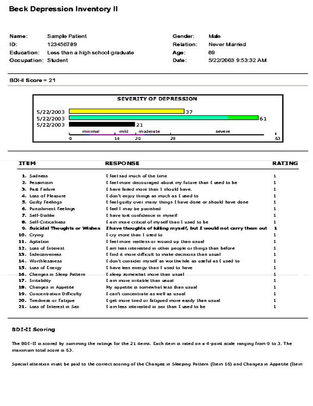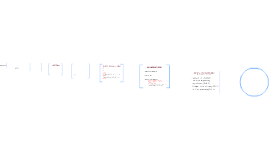Overview
The BYI is a 100-item self-report measure comprising five self-report inventories that can be used separately or in combination to assess symptoms of depression, anxiety, anger, disruptive behaviour, and self-concept.

Read Free Beck Youth Inventories Manual Beck Youth Inventories—Second Edition (BYI–2) Beck Youth Inventory Overview The BYI is a 100-item self-report measure comprising five self-report inventories that can be used separately or in combination to assess symptoms of depression, anxiety, anger, disruptive behaviour, and self-concept. See full list on corc.uk.net. The new Beck Youth Inventories™ Second Edition (BYI-2) uses five self-report inventories to assess symptoms of depression, anxiety, anger, disruptive behavior, and self-concept in children and adolescents. The demonstration of construct validity with Beck Self-Concept Inventory for Youth (BSCI-Y) and Beck Anxiety Inventory for Youth (BAI-Y) (two subtests of Adapted Bangla Beck Youth Inventories of.
The five BYI are:
1) The Beck Depression Inventory for Youth (BDI-Y)
2) The Beck Anxiety Inventory for Youth (BAI-Y)
3) The Beck Anger Inventory for Youth (BANI-Y)
4) The Beck Disruptive Inventory for Youth (BDBI-Y)
5) The Beck Self-Concept Inventory for Youth (BSCI-Y).
Each inventory contains 20 questions about thoughts, feelings and behaviours associated with emotional and social impairment. Children and young people describe how frequently a statement has been true for them over the past two weeks.
Psychometric properties
| Property | Definition | BYI |
| Reliability | Degree to which respondents in a similar sample had similar scores. | No information at present. |
| Test-retest reliability | The degree to which similar items within a scale correlate with each other. | The BYI shows good to excellent internal consistency, with (alpha) coefficients ranging from 0.86 to 0.96 (Measure Profile, 2012). |
| Concurrent validity | Degree to which the same respondents have the same score after period of time when trait shouldn’t have changed | Test re-test reliability correlation coefficients have been found to range between 0.74 to 0.93 (Measure Profile, 2012). |
| Discriminant validity | Inverse correlation with opposite concepts | The BYI demonstrates good discriminant validity, and has been found to reliably discriminate between internalising disorders, with the exception of depression (Measure Profile, 2012). |

Populations
The BYI is to be completed by children and young people aged 7-18 years old.
Translation
The BYI is available in English, Danish, French and Polish.
Administration
The BYI is a paper-pencil format so the child/young person can complete this on paper or it can be verbally administered if necessary.
Scoring
Raw scores
• Add scores from Items 1-20 for the total BSCI-Y score.
• Add scores from Items 21-40 for the total BAI-Y score.
• Add scores from Items 41-60 for the total BDI-Y score.
• Add scores from Items 61-80 for the total BANI-Y score.
• Add scores from Items 81-100 for the total BDBI-Y score.
T-Scores
Raw scores are translated into T-scores assigned by age and gender:
• Females 7-10 years old, 11-14 years old, 15-18 years old
• Males 7-10 years old, 11-14 years old, 15-18 years old.
You can use the tables in Appendix A - Tables for Beck Youth Inventories (p.246) to convert raw scores into T-scores.
Interpretation
T-scores for BYI are as follows:
• 55 or less = average
• 55-59 = mildly elevated
• 60-69 = moderately elevated
• 70+ = extremely elevated
Beck Youth Inventory Pdf Free
Terms of use
Purchase the BYI manual, kit and/or booklets.


Beck Youth Inventory Free Download
References
Measure Profile: Beck Youth Inventories (BYI). (2012). Retrieved from: http://www.excellenceforchildandyouth.ca/support-tools/measure-profile?id=335
The norms, reliability and validity statistics included in each measure profile are those reported by the author(s) of the measure. It is important to note that altering, adding or removing questions from a measure voids these reported statistics, possibly making the revised tool unreliable and invalid.
1,278 children and adolescents ages 7-18 from the U.S. Sample was reflective of U.S. population demographics.
The authors report internal consistency (alpha) coefficients ranging from 0.86 to 0.96, and test-retest reliability correlation coefficients ranging from 0.74 to 0.93. Another study found alphas of 0.87 to 0.92, and test-retest coefficients that were all greater than 0.70.
Beck Youth Inventory Pdf Free
Beck Depression Inventory For Youth Free
The authors report evidence of good concurrent validity for each of the individual inventories (except the anger inventory) with measures of those constructs (e.g., the depression inventory with the Children’s Depression Inventory), and discriminative validity. A further study found that while the BYI could differentiate between clinical and non-clinical samples, it was bit able to reliably discriminate between internalizing disorders, with the exception of depression.